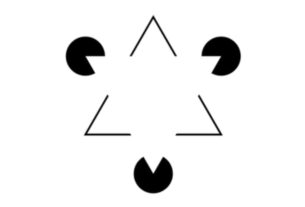What nobody tells you about Severance Season 2
What nobody tells you about Severance Season 2 is that, beneath its gripping sci-fi mystery, the show is a disturbingly realistic psychological horror about the fragmentation of identity in modern society. While fans discuss the twists and turns, few emphasize how the series subtly mirrors real-world psychological experiments, corporate exploitation, and social conditioning in ways that hit closer to home than we’d like to admit.
1. The Show is a Psychological Experiment in Itself
Many viewers don’t realize that Severance mimics classic psychological studies. The Milgram Experiment (obedience to authority) and Zimbardo’s Stanford Prison Experiment (role-induced behavior change) are evident in how Lumon conditions its employees to accept their imprisonment. The severed workers, especially in Season 2, demonstrate signs of learned helplessness, an effect observed in studies where subjects stop resisting oppression when repeated efforts to escape fail.
2. The Real Horror: The Show Reflects Our Everyday Work Lives
While the severance procedure may seem like pure dystopian fiction, Severance Season 2 makes it clear that the real horror is how much we already live like this. Most people compartmentalize their work and personal lives to an extreme degree, struggling with burnout, detachment, and corporate exploitation. The show isn’t just about a sci-fi technology—it’s a mirror to modern workplace culture, where people are expected to function as emotionless “work versions” of themselves.
3. Memory Loss is the Ultimate Psychological Prison
One under-discussed aspect of Severance is how it portrays memory manipulation as the most terrifying form of control. Season 2 takes this further by exploring the psychological trauma of fragmented consciousness—what happens when your mind is not fully yours? This echoes real-world cases of dissociative amnesia, PTSD, and extreme workplace dissociation, conditions where people experience gaps in memory due to stress or trauma.
4. The Symbolism of Lumon’s Architecture is Deeply Psychological
The hallways of Lumon are more than just eerie set design—they represent a mental maze where the characters (and by extension, the viewers) feel lost, trapped, and manipulated. The lack of windows, the identical rooms, and the oppressive symmetry induce feelings of claustrophobia and depersonalization, much like real-life environments designed for psychological control (e.g., prisons, psychiatric wards, and totalitarian institutions).
5. It’s a Case Study in Corporate Cult Behavior
Nobody tells you that Severance is one of the most accurate portrayals of corporate cult dynamics. Season 2 delves deeper into Lumon’s bizarre rituals, which resemble indoctrination techniques used by real-life cults and oppressive organizations. These include:
- Love bombing (excessive praise and rewards to encourage loyalty)
- Punitive isolation (employees are kept physically and emotionally separated from the outside world)
- Erasure of personal identity (employees are stripped of individuality, forced to conform to the company’s ideology)
6. Season 2 Challenges the Notion of Free Will More Than Ever
One of the scariest aspects of Season 2 is its philosophical deep dive into free will. If your memories can be rewritten, if your choices can be predetermined, and if you don’t even know your full self—do you truly have control over your life? The implications go far beyond Severance and raise unsettling questions about how much of our own lives are dictated by external forces.
7. The Ending Will Likely Be More Disturbing Than Anyone Expects
While many fans expect a dramatic revolution, Severance doesn’t follow conventional storytelling rules. If Season 2 continues its trajectory, it’s likely that instead of a satisfying resolution, we’ll get a haunting realization about identity, memory, and control that lingers far beyond the final episode.
In the end, Severance isn’t just a workplace thriller—it’s a psychological horror story about the way we live today.



